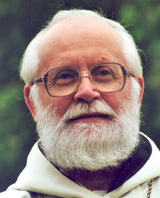 |
|
||
|
|
|||
June 12, 1988 11th Sunday "B"
HOMILY About a year ago, someone gave me a plant called a prayer plant (one of those plants that close like praying hands during the night and open up during the day). When I got it it was in pretty bad shape. I took good care of it, and out of a feeble stem grew a large number of leaves. So much so that the feeble stem broke. I could have thrown the plan away; but I kept watering it and then, after a while, out of the roots a new, strong stem grew up, and it will soon be as big as it was before. It is to that process of waiting and of growth, that Jesus compares the Kingdom of God in today's gospel. The two parables we just heard, the one about the patient husbandman and the one about the mustard seed, are part of a group of four parables, the other two being the one about the sower (Mk 4:3‑8) and the one about the leaven (Mt 13:33). Those four parables are concerned with the same reality: the failure encountered by Jesus in his preaching, or at least the slowness with which the results of his preaching manifested themselves. In the story of the patient husbandman, the Kingdom of God is compared to the slow growth of the seed until the harvest, and simultaneously to the prolonged inactivity of the husbandman before the feverish work of the harvest. God is the husbandman who will be active at the time of the harvest, but seems not to act throughout Jesus' ministry. He leaves Jesus isolated, without success, rejected more and more by his own. The Jews challenged Jesus, if he claimed Messiahship, to provide the signs that would herald the kingdom. His reply was that there are no spectacular signs. God allows the seed to grow slowly, but there is nothing to be lost by waiting: there is absolute continuity between the growing pains of the kingdom of God and its manifestation in plenitude. Then the parable of the mustard seed fosters confidence in God by stressing the contrast between the humble beginnings of the Kingdom and the dimensions of its eschatological future. Jesus certainly wanted by that parable to provide an answer to people who contrasted the feebleness of his means with the glory of the expected Kingdom. Through these parables, Jesus is calling us once more to patience: patience with ourselves, with our brothers, with the growth of his kingdom and our own growth. And he reminds us that accidents and failure, wounds and healing, are normal parts of that process, and give it its beauty. They are part of our created beauty, of our beauty as creature. Now this, for us, is very difficult to accept. To accept that we are not perfect, that nothing around us is perfect: that our whole life has to be a long pilgrimage from our brokenness to a situation of perfect growth that is reserved for the time of harvest. Perfect harmony is not a dimension of creation, and therefore not a dimension of human existence, not even of redeemed human existence. The grandiose description of the Book of Genesis does not show us a world coming out of the hands of God perfectly centered, in perfect harmony: On the contrary, it seems that at the Word of God, each one of the elements: water, land, sun and moon, animals and human beings crashed into existence. And then began the long process towards the total harmony, the achieved perfection, a process leading to the eschatological bliss but passing through screaching sounds and accidents, failures, and silent waiting. In this precisely is the beauty of our created world. In today's Gospel, Jesus is founding our hope on the assurance of the day of harvest but he is also inviting us to bear with patience the period of waiting. In this Eucharist, let us both ask him and thank him for these two things: hope and patience.
|
|
||
|
|
|||
